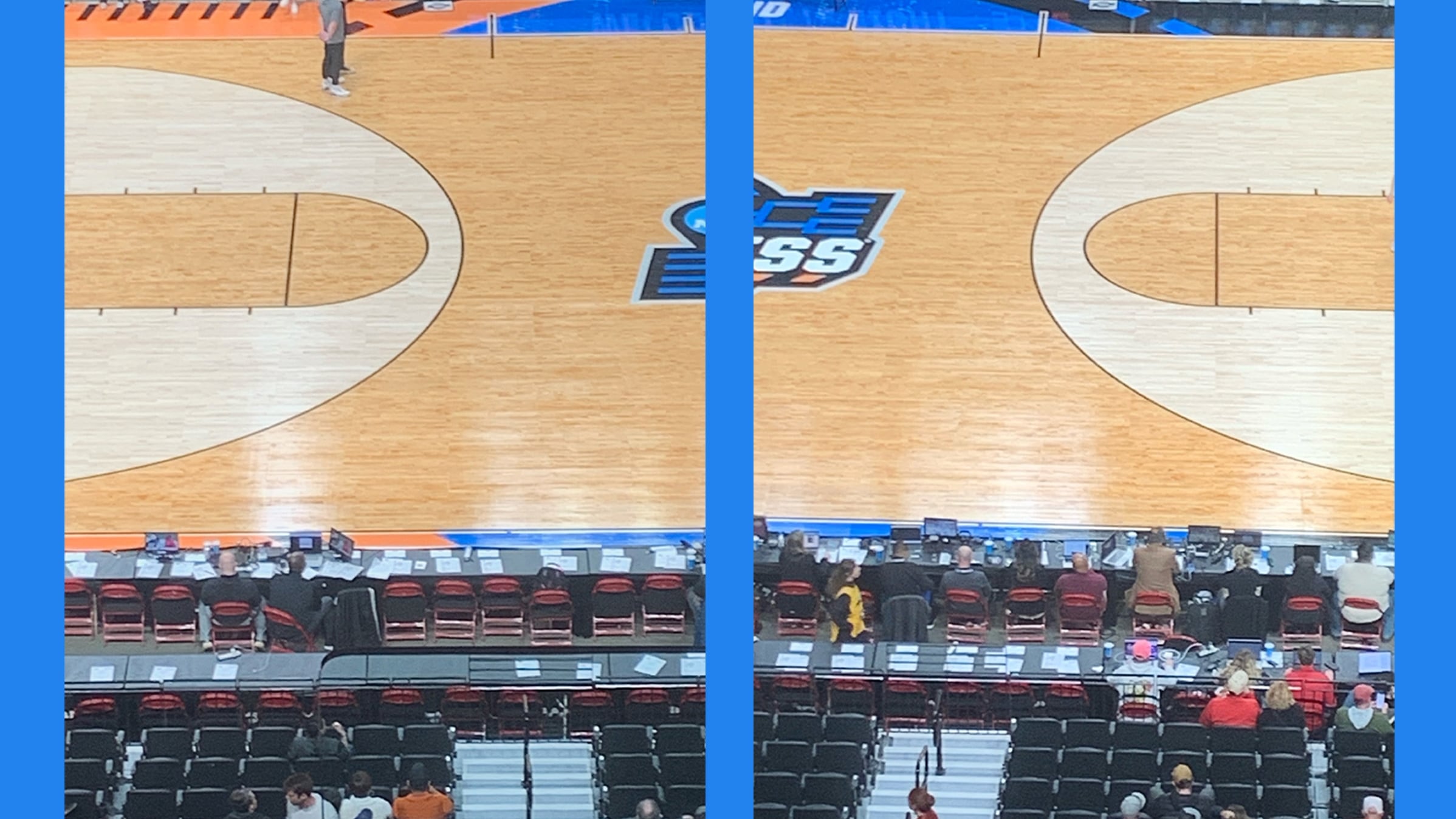College basketball fans and pundits across the country are aghast about the epic fail on the court at Moda Center at the NCAA Women’s Tournament games this weekend. The 3-point lines on opposite ends of the court were two different lengths—one fell 9 inches short of regulation—for five games over two days.
The NCAA released a statement about the embarrassing oversight: “We apologize for this error and the length of time for which it went unnoticed. Simply put, this court did not meet our expectations, and the NCAA should have caught the error sooner. We will work with all of the NCAA’s suppliers and vendors to establish additional quality-control measures to ensure this does not happen in future tournaments.”
No. 1 University of Southern California will take on No. 3 University of Connecticut tonight at 6 pm for their Elite Eight game at Moda Center, with 3-point lines that have presumably now been triple-checked for accuracy.
The discrepancy was not noticed by referees, coaches, players or NCAA officials. It was discovered by a Portland divorce lawyer sitting up in the nosebleed seats. WW interviewed Michael McGrath of the family law firm Gearing, Rackner & McGrath LLP about how he eagle-eyed the problem, got the attention of officials, and (belatedly) saved the day. The following interview has been edited for brevity and clarity.
WW: Are you a big women’s college basketball fan?
Michael McGrath: No. I’ve never been to a women’s basketball game. I only went there because I figured, all right, it’s like 10 bucks, I’ll go. I live nearby in the Pearl District. I knew the 3-point lines were different from the NBA, so that was kind of a clue.
How quickly did you realize there was a problem with the paint?
I saw it in like three seconds. Seriously. I mean, I walked in and one team was practicing on the correct side of the court, and you could just see that the other side was too short.
But how?
I’m a lawyer, so that’s what I do all day long, I proofread stuff. I notice grammar mistakes. I do divorce, so half my job is negotiation and half is making sure that whatever we negotiate is accurate. That, and I’m probably just a nerd.
How did you alert the officials from your 300-level seats?
I had taken pictures to post on Reddit and send to my wife. Five minutes went by and nobody was doing anything. And I pointed out to the fellas next to me, “See how the lines are not the same?” He said, “I have been here for three days and I never noticed.” I said, “How did you not?”
The guy in front of me stood up and waved to someone down at the court, and he waved back from courtside. So I went to him and said, “Who is this guy? Can he talk to the referees?” He texted his buddy who got ahold of someone in the NCAA, and three minutes later, they pulled out the big measuring tape.
My kids were watching the game at home and said, “There’s some kind of delay.” I said, “I know. I think I caused that.”
How has your family reacted to your moment in the spotlight?
My wife said, “Of course it’s you. You literally trim the Christmas tree and make sure there’s no branch out of sync.” Well, yes. I’m not paying $80 for a Christmas tree and having it lopsided. I’m probably just type-A.
Any reaction from the NCAA?
No. I’m sure the NCAA isn’t happy that I pointed this out. I can’t imagine if it was a men’s game—people’s heads would explode. Or a close game? That’s what I was worried about, is what if it ends up being a 3-point game? Too bad for them.
I’m amazed that nobody saw it; thousands of fans over three days, and nobody saw it. And if they did, nobody thought to say anything. To be fair, if I had to walk down there, I wouldn’t have said anything. From the 300 level down to the game floor? That’s kind of a walk.

